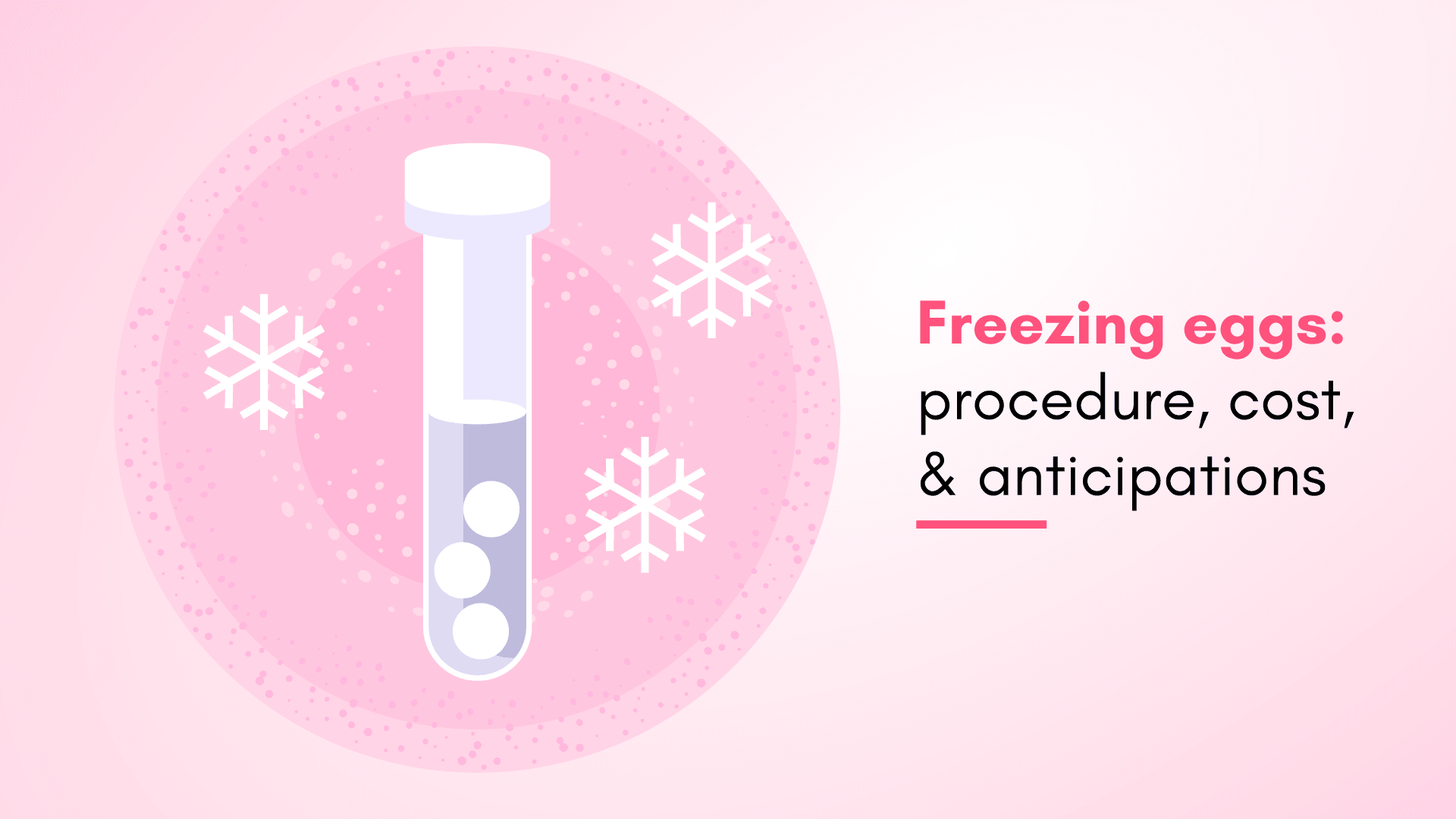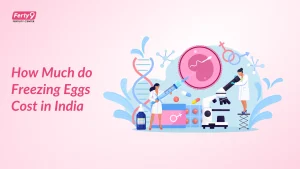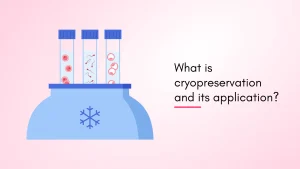Parenthood is a beautiful journey and begins a new phase of your life. At the same time, it is heavily burdened with responsibilities. From mental exhaustion and financial expenses to physical changes, the partners go through a lot of things.
While some couples are ready to own up to these responsibilities, others want time. They are looking to delay pregnancy without missing out on the opportunity of becoming parents. This is where freezing eggs come into play. What was not a common phenomenon earlier has turned into a confident step for couples.
Whether you are focusing on your career today or saving up for the future, the egg freezing process gives you a choice to conceive when you are ready. Although a well-known concept, not a lot of people are clear about the process, cost, risks, and anticipation involved. Through this article, we will help you understand all about this procedure.
Suggested Read: The Role Of Fertility Centers In Modern Reproductive Medicine
What is egg freezing?
The first thing to understand is what is freezing of eggs.
Egg freezing is a kind of ART (assisted reproductive technology). Also known as oocyte cryopreservation, this process is where medications are provided to boost egg growth in a woman. These eggs are later harvested from the ovaries and then stored for freezing in an unfertile state.
Once a woman is ready to have kids, these frozen eggs can be thawed and fertilized with sperm in the lab. This leads to embryo formation, which is then implanted into the uterus for pregnancy. The process is called IVF (In-Vitro Fertilization).
P.S. Although most women in general go through the egg freezing process to use in the future, some also go for donation. This is where the donor gives her eggs to another couple for fertility treatment.
Although the egg freezing procedure does not assure a 100% successful pregnancy, it improves the chances for a later stage.
Suggested Read: Frozen Embryo Transfer: Advantages and Considerations
Who Should Consider Egg Freezing?
One of the important things to understand is whether freezing your eggs is the right option.
A woman is born with countless eggs, but their number and quality diminish with time. This reality impacts her chances of natural fertility as she ages.
As much as medical science has advanced, one factually correct thing is the biological clock ticking. Whether it is a dinner table conversation or your friends discussing their new parenthood journey, this can be a painful topic for you. That’s why several women in their early 30s wonder about freezing eggs. Here are some of the cases in which you should consider it:
- You have not found the right partner yet.
- You are not mentally prepared to grow your family.
- You don’t have the financial stability to want to take care of a child.
- You want to donate your eggs.
- You have been diagnosed with either premature ovarian failure or cancer.
As the technology of preserving eggs for fertility has significantly advanced, it has given women an opportunity to live their lives flexibly.
What exactly is the egg freezing procedure? What happens when you go for the process? Let’s find out.
Suggested Read: 7 Reasons to Consider Frozen Embryo Transfer
The Egg Freezing Procedure: Step-by-Step
The process of women freezing eggs takes approximately 2 to 3 weeks. Timelines can vary, and sometimes, it is completed before 2 weeks as well.
The ovaries are stimulated for egg production and this process is timed with the woman’s menstrual cycle. During the cycle, the ovaries are extensively monitored through blood tests and ultrasounds. This is done to keep a tab on the hormone levels as well.
Initial Consultation
The first step towards preserving eggs for fertility is a consultation session with your fertility consultant. During this consultation, you need to submit your medical history, hormone testing, and blood checkup. The consultant might also ask you to go through the transvaginal ultrasound, done to check the AFC (antral follicle count). This helps assess the remainder eggs in your ovaries.
Once the checkup is done, the fertility expert will provide a stimulation protocol so that the maximum number of eggs can be safely retrieved. He will also give an estimate as to how many eggs can be extracted during the process. Some safety measurements and required medications will also be provided.
Ovarian Stimulation and Monitoring
The next step is where the process actually begins. Depending on the current stage of your menstrual cycle, you will begin taking birth control pills (other medicines, according to the doctor’s prescription). These pills will help synchronize the follicles so that they respond in the same manner when you take stimulation medicines later.
Suggested Read: What is Ovarian Stimulation?
The synchronisation medicines will begin right after ovulation or during your menstrual cycle. Then there will be regular monitoring through ultrasounds and blood tests so that the stimulation injections can be used timely. After that, your physician can also provide self-administrating injections.
The injections are taken to boost the ovaries and produce several eggs during a single cycle. They will be given regularly for 10-12 days. During this process, you have to go for 3 to 5 checkups to track the follicles’ progress. Once an accurate follicle size is achieved, you will get a trigger shot (medicine injection).
Egg Retrieval Process
It is time to retrieve the eggs, also called egg harvesting. This is where the eggs are extracted from the ovaries.
Your physician will inject an IV so that general anesthesia can be given. During the egg retrieval process, the doctor will use an ultrasound probe along with a needle. The probe is inserted into the follicles, and the fluid (containing eggs) is collected into the tube. The tube is then given to the embryologist, who examines the fluid and identifies the egg.
The entire process is over within 15 to 20 minutes. After which, your anesthesia slowly starts wearing off.
Recovery and egg freezing
The final stage is freezing your eggs. Once your mature eggs are effectively retrieved, they are frozen through vitrification. This is the process where eggs are quickly frozen with the assistance of liquid nitrogen. It not only helps in freezing eggs but also prevents the risk of crystallization. It improves the chances of survival and a successful pregnancy.
Several patients experience vaginal spotting, cramps, constipation, and bloating through the first day of the egg retrieval process. But it is quite normal. You can get a heating pad or over-the-counter pain relief medicines.
In case you are feeling lightheaded, dizzy, have excess vaginal bleeding, or facing extreme abdominal pain; consult your doctor immediately.
Now that we are clear on what is egg freezing process, let’s get into the financial side of it.
What is the cost of freezing eggs?
If you are wondering how much it costs to freeze eggs, this depends on your geographical location and the clinic you are consulting. Typically, insurance plans do not cover this procedure so you have to take care of the expenses yourself.
The price of women freezing eggs is calculated on a cycle basis, i.e., separate costs for stimulation, retrieval, and freezing. It generally ranges somewhere between INR 5 lakhs and 10 lakhs. This cost can further increase when you include medications. Medicine dosages alone can cost you around INR 2 lakhs to 8 lakhs.
Now comes the cost of storing your frozen eggs. You have to pay fixed charges to the lab for keeping your eggs safe. It can turn into an expense of INR 50,000 to INR 1 lakhs.
The ideal choice is to search for a clinic that provides a flexible payment plan. Consult your physician and discuss this before you go through with the procedure.
What to Expect After Egg Freezing
Although a much sought-after procedure today, it is sometimes accompanied by a few side effects. After a successful egg-freezing process, you might feel discomfort, skin irritation, or cramps. They will subside when you use doctor-prescribed medicines and skin creams.
Egg freezing definitely gives you hope of a pregnancy in later life, but it is not 100% guaranteed.
The success rate of frozen eggs depends on several factors. They include egg quality (not detectable at the time of egg retrieval) and age. Also, not all frozen eggs can survive the thawing, and some might not be fertilized by the sperm.
As you go through the process of freezing eggs, it is imperative to be clear on its advantages and limitations. A woman has to be mentally prepared about the frozen eggs not always working out for her.
Conclusion
When a woman is about to reach the age of 30, she is at her peak fertility time. If you are planning to freeze your eggs, this is the right time to do it. Although eggs can be retrieved after that as well, doctors do not encourage this option for women in their 40s. As your eggs are frozen, you can plan your parenthood journey at a later stage.
However, the chances of conceiving a child depend on several other factors, including age, lifestyle, and egg quality and quantity. So, consult your fertility specialist and understand the implications of this procedure. Make your decision wisely!




























